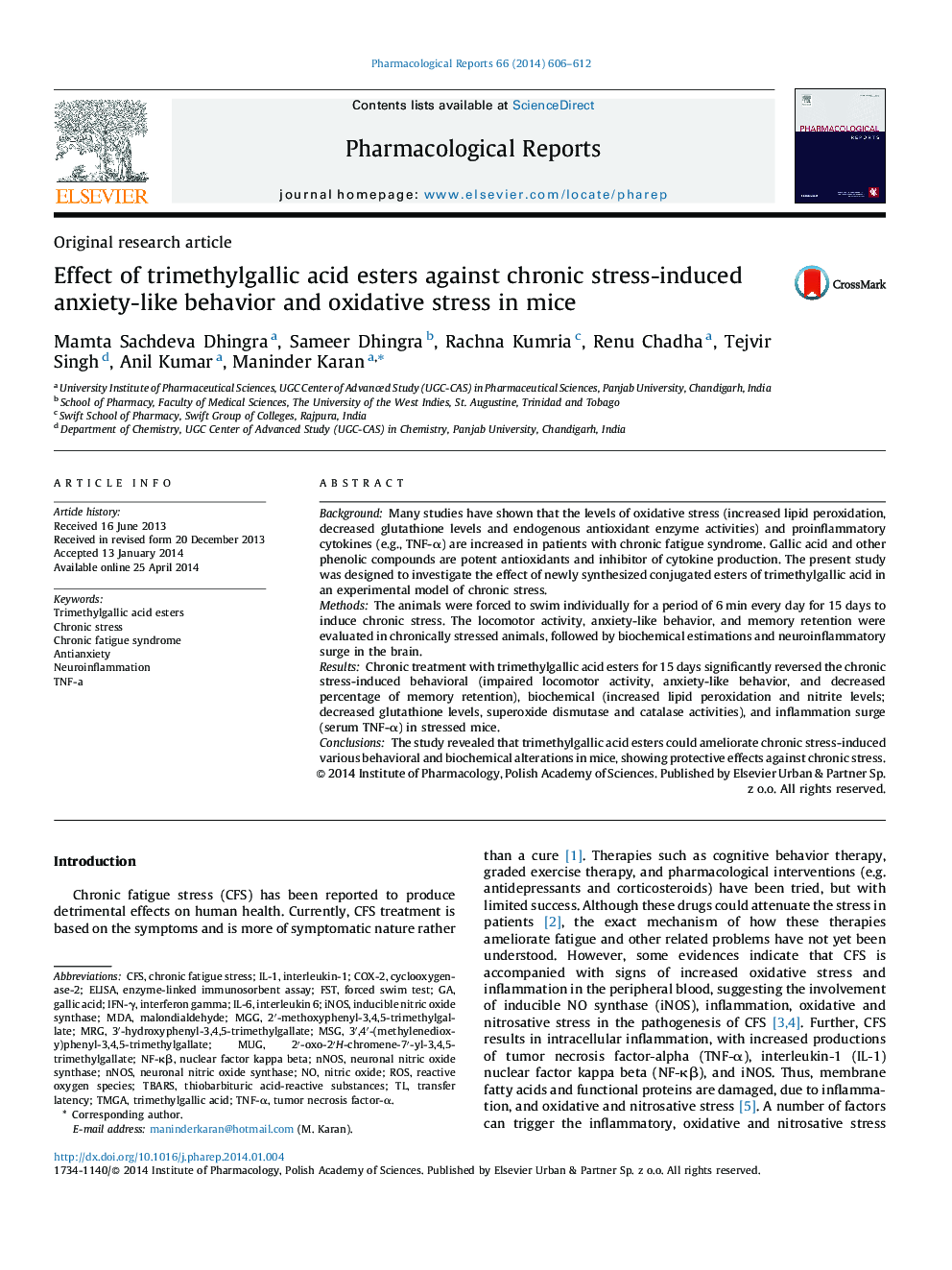| Article ID | Journal | Published Year | Pages | File Type |
|---|---|---|---|---|
| 2012093 | Pharmacological Reports | 2014 | 7 Pages |
BackgroundMany studies have shown that the levels of oxidative stress (increased lipid peroxidation, decreased glutathione levels and endogenous antioxidant enzyme activities) and proinflammatory cytokines (e.g., TNF-α) are increased in patients with chronic fatigue syndrome. Gallic acid and other phenolic compounds are potent antioxidants and inhibitor of cytokine production. The present study was designed to investigate the effect of newly synthesized conjugated esters of trimethylgallic acid in an experimental model of chronic stress.MethodsThe animals were forced to swim individually for a period of 6 min every day for 15 days to induce chronic stress. The locomotor activity, anxiety-like behavior, and memory retention were evaluated in chronically stressed animals, followed by biochemical estimations and neuroinflammatory surge in the brain.ResultsChronic treatment with trimethylgallic acid esters for 15 days significantly reversed the chronic stress-induced behavioral (impaired locomotor activity, anxiety-like behavior, and decreased percentage of memory retention), biochemical (increased lipid peroxidation and nitrite levels; decreased glutathione levels, superoxide dismutase and catalase activities), and inflammation surge (serum TNF-α) in stressed mice.ConclusionsThe study revealed that trimethylgallic acid esters could ameliorate chronic stress-induced various behavioral and biochemical alterations in mice, showing protective effects against chronic stress.
